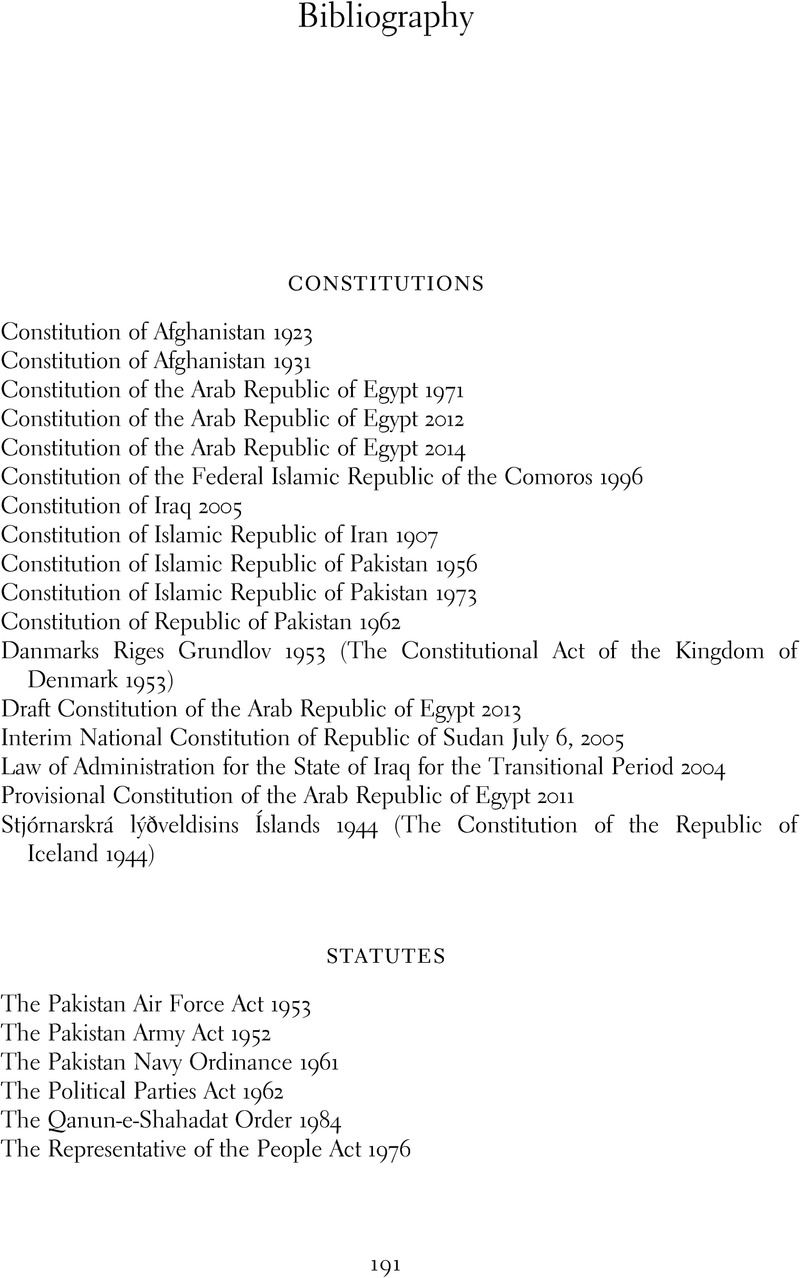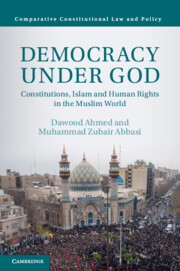Book contents
Bibliography
Published online by Cambridge University Press: 23 February 2023
Summary

- Type
- Chapter
- Information
- Democracy under GodConstitutions, Islam and Human Rights in the Muslim World, pp. 191 - 206Publisher: Cambridge University PressPrint publication year: 2023



